The recent improvement in weather conditions has allowed Patrick to make a start to his harvest and he is now over a third of the way through.
He says he is grateful to have his farm on a hilly, free-draining area where trafficability has not been as much of an issue.
While this harvest has not been plain-sailing like last year, he is well aware that many parts of the country are in far worse situations.
The gluten-free spring oats were cut last week. Patrick was surprised at how well they yielded, at 3t/ac.
The moisture content averaged around 18%. This crop was after spring beans and had received chicken manure before sowing.
According to Patrick, both of these helped the crop to produce a good yield. The crop received just 75kg/ha of nitrogen.
The straw was chopped under the Straw Incorporation Measure. This has now been incorporated.
Patrick has also cut a few fields of Geraldine spring barley. While yields are well back on last year, the earlier-planted fields are yielding around 3t/ac at an average of 16.8% moisture. The quality is also quite good, with a hectolitre weight of between 63 and 65kph. Patrick is relatively happy with this so far but it is early days yet and he feels that the yield and quality will reduce as he begins to harvest barley that was sowed at a later date.
He has chopped all this straw so far and is spending the damp days incorporating this, while simultaneously sowing a cover crop of forage rape and leafy turnip.
The spring beans were badly broken over by storm Betty last week but there should not be any losses so far. However, Patrick would not like them to get too much more hardship. They are nearly ripe and they might be harvested before some late spring barley.
The O’Gorman brothers have got through a lot of work in the past month, and there was only 13ac of spring barley left to be harvested at the start of this week.
The winter wheat harvest began on 8 August and finished 10 days later. Yields were good for the year that’s in it, ranging from 3.9 to 4.35t/ac, with an average of 4.1t/ac. The higher yields came on fields following potatoes. Moistures started at 19% and fell to 15.5%, while hectolitre weight was around 75kph. Kevin was happy enough with this and says that wheat nearly always comes out on top in the rotation, which unfortunately cannot be said for the spring malting barley.
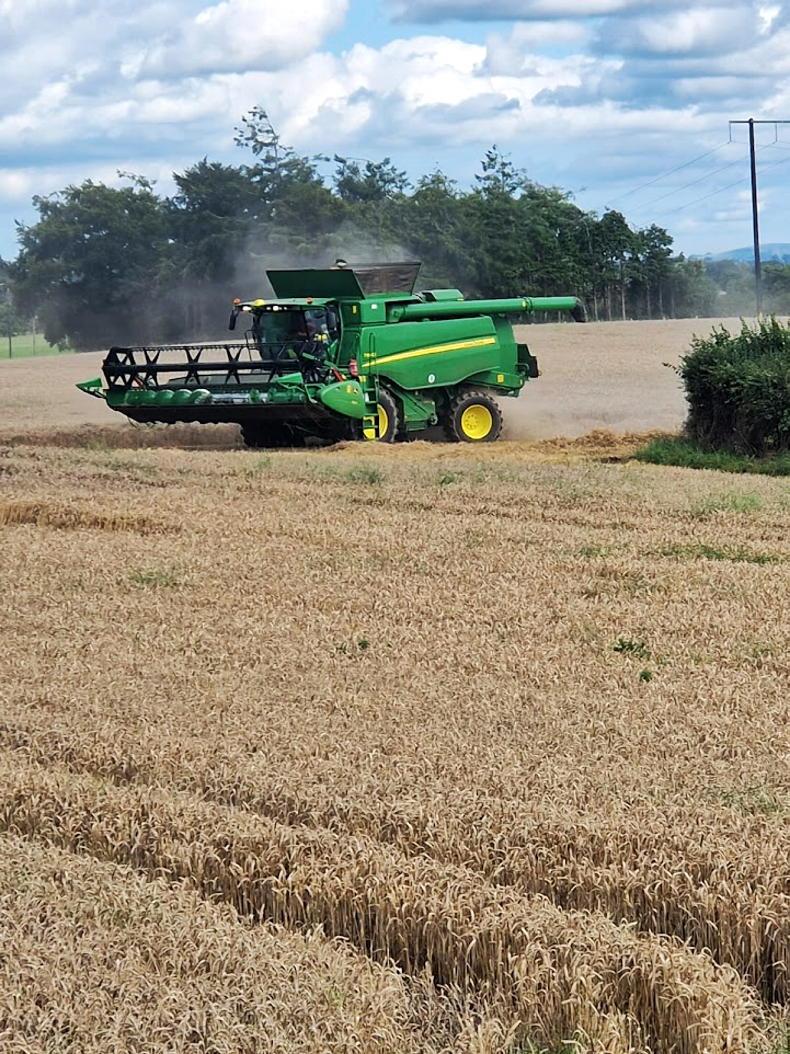
The O'Gorman brothers harvesting winter wheat.
Yields have been between 2.5 and 2.8t/ac at 17% to 20% moisture content.
The first 60t passed for malting but the remainder has failed due to poor germination, which dropped from 98% to 80% within the first four days of the malting barley harvest.
The winter barley straw was finally baled, six weeks after the crop was cut. This has allowed for winter oilseed rape to be planted this week. The ground is being ploughed and one-passed to ensure good seed-to-soil contact. Aurelia will be drilled at 1.85kg/ha, with 250kg/ha of 10-10-20 placed in the seedbed. A pre-emergence herbicide of Katamaran Turbo at 2.4l/ha will then be applied.
The potatoes have been slow to bulk up due to the wet ground conditions, but the ground is drying out and they should make good progress now. They are being tested for size and dry matter this week. Hopefully some fields will be ready for flailing this week to allow for harvest in three to four weeks.
Kevin notes that it has been a harvest to forget in terms of profit and weather.
He says that input costs, especially fertiliser, have been the biggest issue this year.
Alex is a bit behind where he would like to be in his harvest. He is currently halfway through the spring barley, but the latest crops are only being sprayed off this week. The spring barley so far has yielded between 2t/ac and 2.5t/ac. It was too wet during grain fill and there was not enough sunshine for the crop to reach its potential.
Most of the spring barley straw is being chopped.
Alex says he did the maths and it did not make sense for him to bale the straw. He notes the same could be true for the winter barley straw, but he managed to get this baled last week. He was glad to get it off the field so that oilseed rape can be planted in it as soon as this weekend.
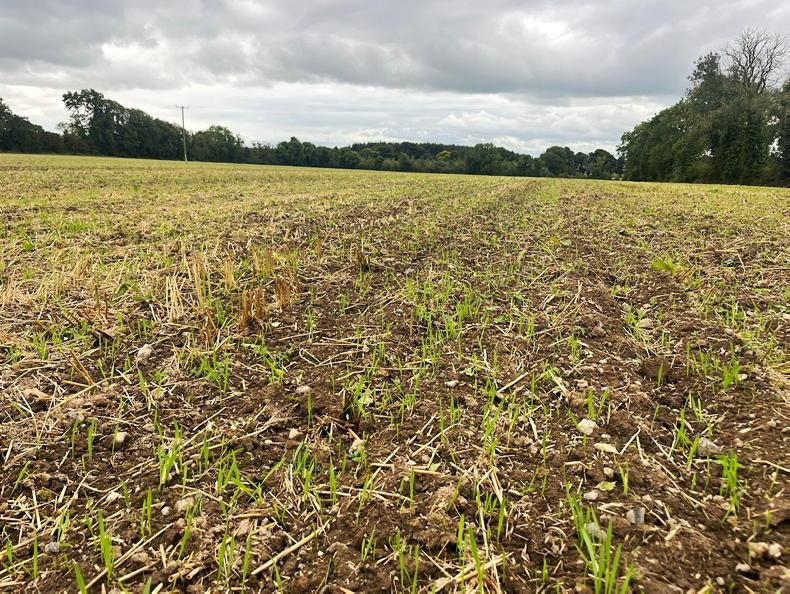
Volunteers emerging from a disced spring oats field on Alex's farm.
If Alex does not manage to plant as much oilseed rape as planned, he will plant winter oats or spring beans in this ground.
He emphasises the need for flexibility in crop rotations.
Alex also notes that slugs will be a big issue this autumn and he will have to be on the ball to deal with any issues that occur.
Alex is also halfway through cutting organic spring oats. Some fresh ground did 2t/ac, while land in its third year of oats did 1.5t/ac. Redshank did very well in the crop this year because of thin crops. Alex turned the fan up a lot to ensure a clean sample that would pass inspection, but some oats were lost out the back of the combine.
Alex feels this was the right decision as rejected trailers would be a disaster. All of the organic oaten straw was chopped to retain nutrients in the soil.
The winter wheat yielded on average 3.8 to 3.9t/ac. Alex says this was not too bad, and that wheat seems to be the most consistent performer on his farm across the years.
The recent improvement in weather conditions has allowed Patrick to make a start to his harvest and he is now over a third of the way through.
He says he is grateful to have his farm on a hilly, free-draining area where trafficability has not been as much of an issue.
While this harvest has not been plain-sailing like last year, he is well aware that many parts of the country are in far worse situations.
The gluten-free spring oats were cut last week. Patrick was surprised at how well they yielded, at 3t/ac.
The moisture content averaged around 18%. This crop was after spring beans and had received chicken manure before sowing.
According to Patrick, both of these helped the crop to produce a good yield. The crop received just 75kg/ha of nitrogen.
The straw was chopped under the Straw Incorporation Measure. This has now been incorporated.
Patrick has also cut a few fields of Geraldine spring barley. While yields are well back on last year, the earlier-planted fields are yielding around 3t/ac at an average of 16.8% moisture. The quality is also quite good, with a hectolitre weight of between 63 and 65kph. Patrick is relatively happy with this so far but it is early days yet and he feels that the yield and quality will reduce as he begins to harvest barley that was sowed at a later date.
He has chopped all this straw so far and is spending the damp days incorporating this, while simultaneously sowing a cover crop of forage rape and leafy turnip.
The spring beans were badly broken over by storm Betty last week but there should not be any losses so far. However, Patrick would not like them to get too much more hardship. They are nearly ripe and they might be harvested before some late spring barley.
The O’Gorman brothers have got through a lot of work in the past month, and there was only 13ac of spring barley left to be harvested at the start of this week.
The winter wheat harvest began on 8 August and finished 10 days later. Yields were good for the year that’s in it, ranging from 3.9 to 4.35t/ac, with an average of 4.1t/ac. The higher yields came on fields following potatoes. Moistures started at 19% and fell to 15.5%, while hectolitre weight was around 75kph. Kevin was happy enough with this and says that wheat nearly always comes out on top in the rotation, which unfortunately cannot be said for the spring malting barley.

The O'Gorman brothers harvesting winter wheat.
Yields have been between 2.5 and 2.8t/ac at 17% to 20% moisture content.
The first 60t passed for malting but the remainder has failed due to poor germination, which dropped from 98% to 80% within the first four days of the malting barley harvest.
The winter barley straw was finally baled, six weeks after the crop was cut. This has allowed for winter oilseed rape to be planted this week. The ground is being ploughed and one-passed to ensure good seed-to-soil contact. Aurelia will be drilled at 1.85kg/ha, with 250kg/ha of 10-10-20 placed in the seedbed. A pre-emergence herbicide of Katamaran Turbo at 2.4l/ha will then be applied.
The potatoes have been slow to bulk up due to the wet ground conditions, but the ground is drying out and they should make good progress now. They are being tested for size and dry matter this week. Hopefully some fields will be ready for flailing this week to allow for harvest in three to four weeks.
Kevin notes that it has been a harvest to forget in terms of profit and weather.
He says that input costs, especially fertiliser, have been the biggest issue this year.
Alex is a bit behind where he would like to be in his harvest. He is currently halfway through the spring barley, but the latest crops are only being sprayed off this week. The spring barley so far has yielded between 2t/ac and 2.5t/ac. It was too wet during grain fill and there was not enough sunshine for the crop to reach its potential.
Most of the spring barley straw is being chopped.
Alex says he did the maths and it did not make sense for him to bale the straw. He notes the same could be true for the winter barley straw, but he managed to get this baled last week. He was glad to get it off the field so that oilseed rape can be planted in it as soon as this weekend.

Volunteers emerging from a disced spring oats field on Alex's farm.
If Alex does not manage to plant as much oilseed rape as planned, he will plant winter oats or spring beans in this ground.
He emphasises the need for flexibility in crop rotations.
Alex also notes that slugs will be a big issue this autumn and he will have to be on the ball to deal with any issues that occur.
Alex is also halfway through cutting organic spring oats. Some fresh ground did 2t/ac, while land in its third year of oats did 1.5t/ac. Redshank did very well in the crop this year because of thin crops. Alex turned the fan up a lot to ensure a clean sample that would pass inspection, but some oats were lost out the back of the combine.
Alex feels this was the right decision as rejected trailers would be a disaster. All of the organic oaten straw was chopped to retain nutrients in the soil.
The winter wheat yielded on average 3.8 to 3.9t/ac. Alex says this was not too bad, and that wheat seems to be the most consistent performer on his farm across the years.






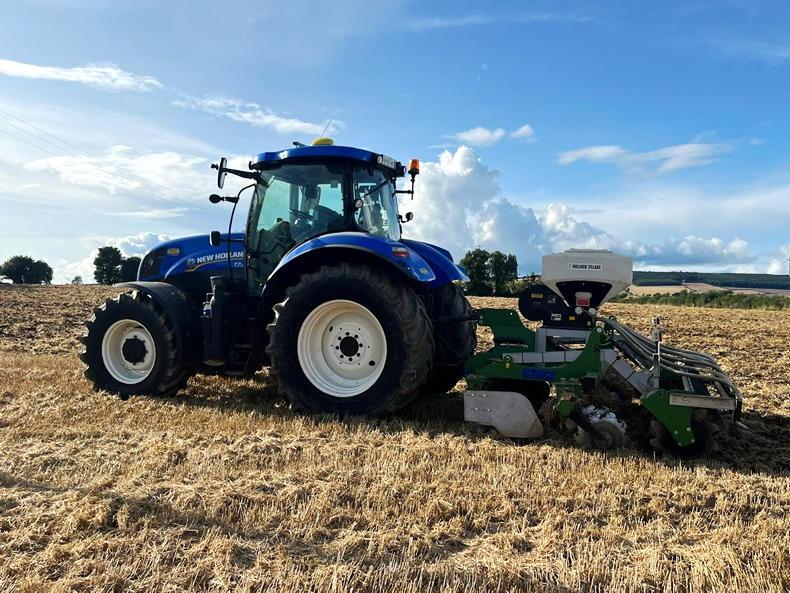
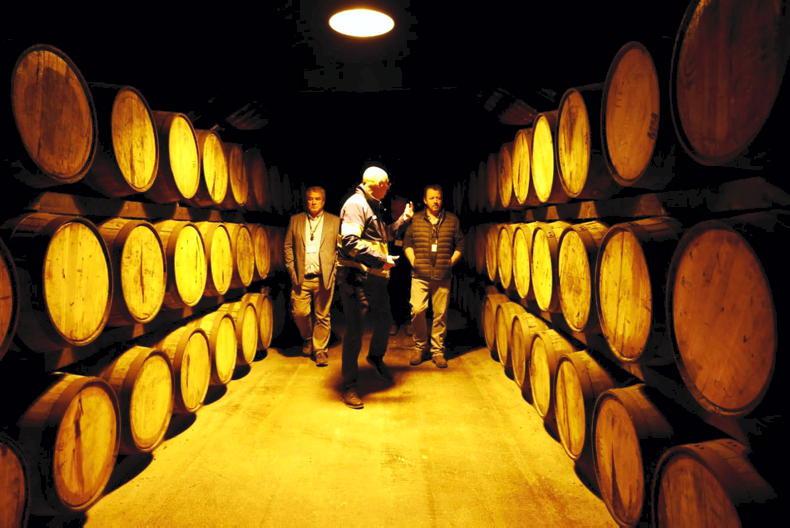
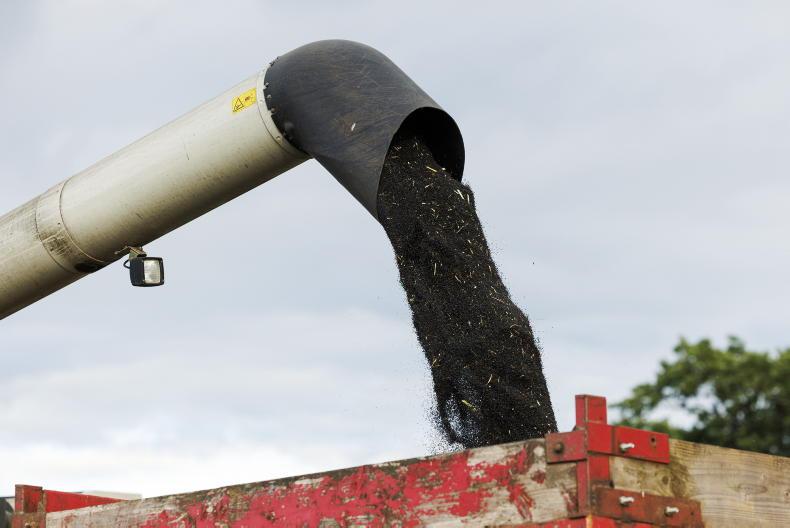
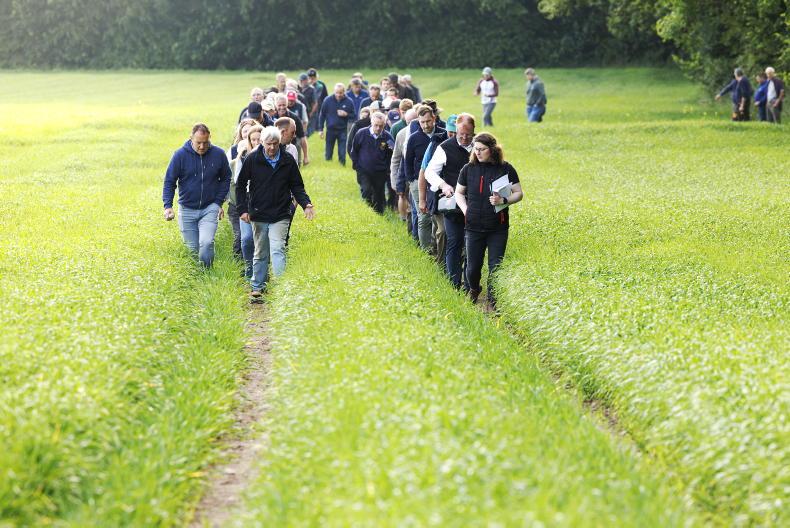

SHARING OPTIONS